The Enigma Unveiled: Exploring Nymphomania – The Realm of Sexual Desire and Pleasure
Delve into the captivating world of nymphomania.
Go through a revealing journey through the depths of sexual desire and pleasure.
Unlock its secrets now!
Human sexuality is an interesting and vast realm.
However, there are many subtopics of it that are often misunderstood.
One phenomenon is nymphomania.
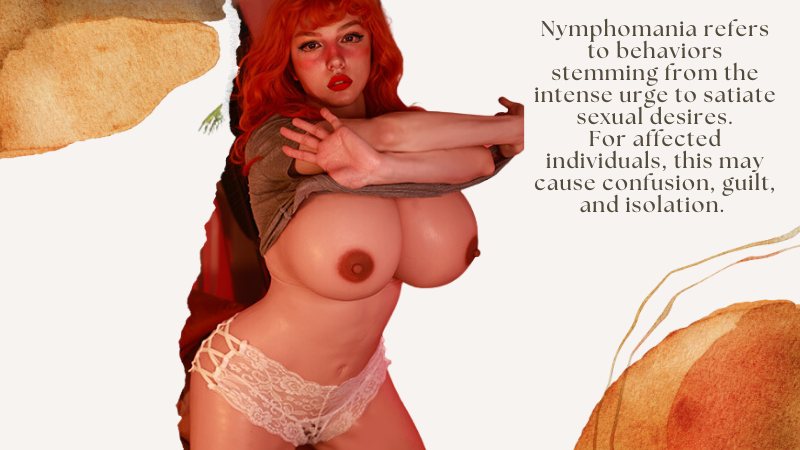
Nymphomania refers to behaviors stemming from the intense urge to satiate sexual desires.
For affected individuals, this may cause confusion, guilt, and isolation.
In this article, we’ll delve into nymphomania and all its aspects.
We’ll answer what it is, the historical perspectives surrounding it, and ways to navigate its complexities.
This knowledge is imperative to offer support to those suffering from this condition.
Understanding Nymphomania
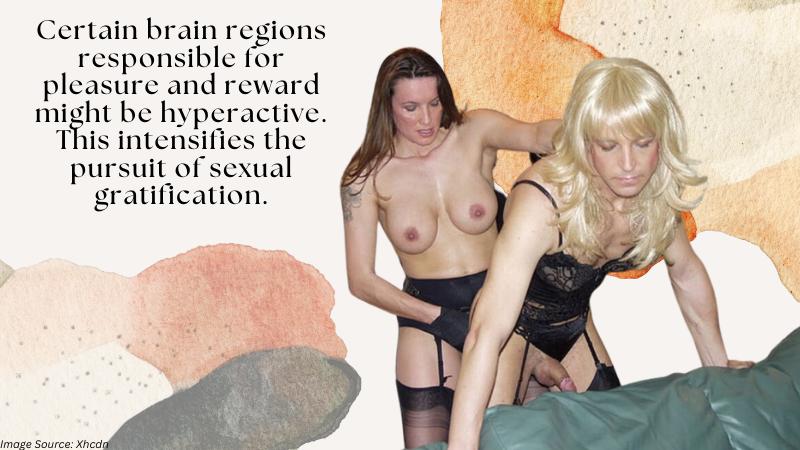
Let’s begin by going to the root of this manifestation:
Biological Factors
Hormonal imbalances are often regarded as the main culprit for hypersexuality.
Some examples are excessive production of testosterone or estrogen.
These can heighten sexual desire and arousal and potentially lead to nymphomaniac tendencies.
Additionally, neurological influences play a significant role.
Certain brain regions responsible for pleasure and reward might be hyperactive.
This intensifies the pursuit of sexual gratification.
Note that hypersexuality in females is nymphomania. Meanwhile, in men, it’s satyriasis.
Psychological Factors
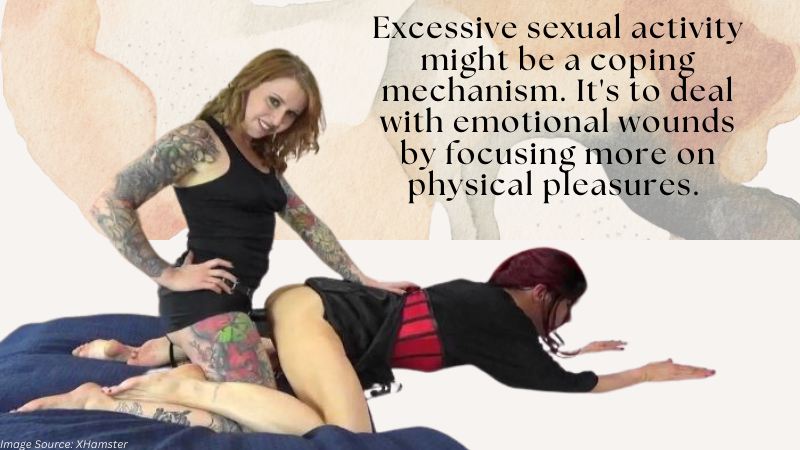
An individual’s mental state influences behaviors.
As such, excessive sexual activity might be a coping mechanism.
It’s to deal with emotional wounds by focusing more on physical pleasures.
For instance, abuse survivors may seek validation and control via their sexual encounters.
This heightened need for affirmation results in compulsive behaviors.
Anxiety, depression, or feelings of emptiness can also push individuals to seek solace in carnal activities.
In some cases, sex can be a fleeting escape from life’s challenges.
It alleviates emotional distress, although temporary.
Nymphomania in Society

It’s not new that culture and media influence society.
After all, they are excellent mediums for information.
This is true whether the information they share is true or not.
Cultural Perceptions and Stereotypes
Societies have often shunned people with heightened sexual desires throughout history.
Even now, some call them deviants and immoral.
Many factors affect these assumptions, like stern religious beliefs or traditions.
Such stereotypes lead to bad reputations and shame.
Media Representations and Impact

It’s easy for social broadcasts to sway public perception and awareness.
Unfortunately, media representation of this condition is mostly negative.
The media insists on distorting details by operating with myths and not facts.
This alienates nymphs and discourages in-depth dialog.
Symptoms and Diagnosis

Professionals still have conflicting opinions about whether nymphomania should be considered a mental illness.
No matter these professionals’ many discourses, no one can deny the evidence linked to this condition.
There’s no formal list of the symptoms related to nymphomania.
Still, it’s important to acknowledge and follow steps to ease it.
Some general symptoms include:
- Having persistent, intrusive thoughts about sex
- Using sex to cope with stressful situations
- Engaging in many sexual activities with consenting adults
- Having many sexual partners
- Doing sexual acts without caring for one’s self or others
- Being preoccupied with sexual fantasies
- Anxiety and depression
- Shame or guilt
- Sometimes, suicidal thoughts
These symptoms often disrupt normal daily activities and quality of life.
Primary Nymphomania
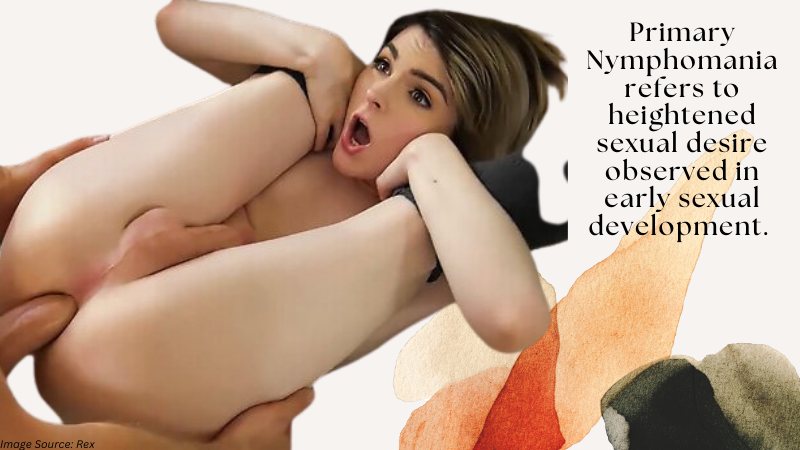
It refers to heightened sexual desire observed in early sexual development.
Those who suffer from it find it difficult to control their urges.
They are often distressed by these impulses.
So much so that it impacts their daily lives and relationships.
Secondary Nymphomania
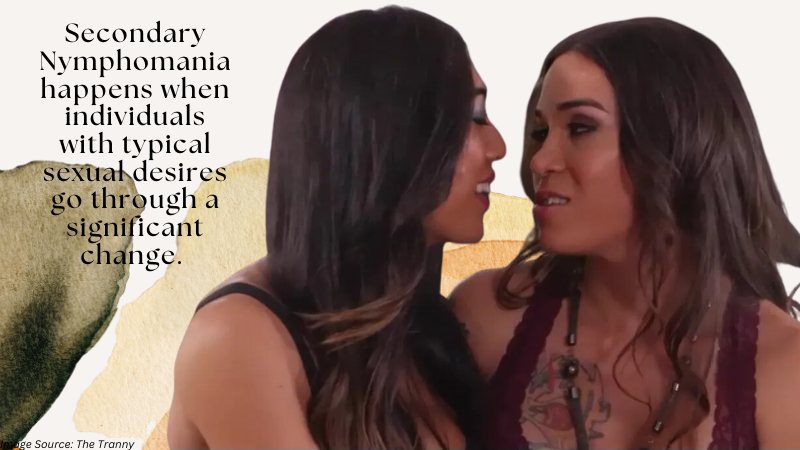
This happens when individuals with typical sexual desires go through a significant change.
It can result from many elements, such as medications or psychological trauma.
This sudden surge in sexual appetite can be disruptive. It’s also confusing and stressful.
Treatment Approaches

Combining methods of treating a nymph requires a concoction of the following.
A tailored approach is best to manage all symptoms.
Psychotherapy and Counseling
Cognitive-Behavioral Therapy (CBT) has been recommended as an effective psychotherapeutic approach for nymphs.
It identifies and modifies thought patterns and behaviors contributing to excessive sexual activity.
It explores triggers and coping mechanisms.
CBT aims to develop healthier ways of managing sexual impulses and emotions.
Dialectical Behavior Therapy (DBT) is another valuable therapy that focuses on regulating emotions.
It also highlights the importance of interpersonal skills.
For those experiencing nymphomania, DBT helps build emotional resilience and coping strategies.
It reduces the need for impulsive sexual behaviors as a crutch.
Medication and Pharmacological Interventions

In cases where hormonal imbalances contribute to nymphomania, hormone regulation may be reviewed.
Hormonal therapies can help stabilize sexual desire and arousal.
They offer individuals greater control over their impulses.
Certain antidepressant medications and mood stabilizers have shown promise in managing hypersexual behavior.
The goal is to address underlying mood disorders or emotional disturbances first.
Eventually, these meds can reduce the frequency and intensity of sexual urges.
The Impact on Relationships
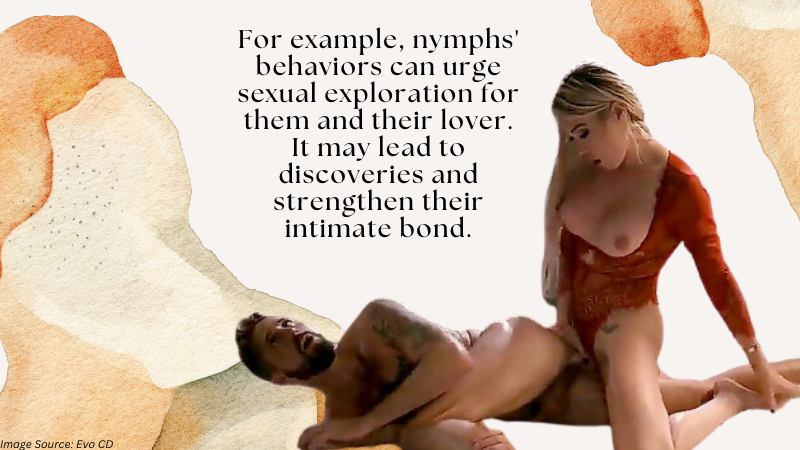
Nymphomania’s impact on intimate relationships has both positive and negative sides.
For example, nymphs’ behaviors can urge sexual exploration for them and their lover.
It may lead to discoveries and strengthen their intimate bond.
On the flip side, partners may feel overwhelmed.
They may also feel neglected by their loved one’s intense sexual desires.
In these cases, open communication and understanding are vital.
Intimacy and connection beyond sexual aspects are also critical.
Additionally, nymphs face societal stigma and misconceptions surrounding their condition.
This lead to feelings of indignity and isolation.
Educating society about this condition and promoting empathy can break down barriers.
Nymphomania and Sexual Health

Those with nymphomania should focus on safety and consensual sexual practices.
It’s great to talk about fantasies and desires to know you and your partner are on the same page.
But you should also always include limits, concerns, and doubts.
Affected individuals should have regular STI testing.
If possible, they should also do other tests to be sure they don’t have any diseases.
Barrier methods are essential too.
Always keep a stack of condoms, and never downplay hygiene.
Myths and Misconceptions

It’s not a surprise that many myths and misconceptions follow nymphomania.
This is especially the case since there’s a lack of available information about this condition.
Below are some common myths you should debunk:
- Nymphomania is a mere desire for pleasure.
It’s not. Rather, it’s a complex condition with a biological and psychological basis.
- Nymphomania stems from moral weakness.
Nymphomania is definitely not a choice.
It’s also not a testament to anyone’s morality.
It’s a condition that demands professional help.
- Nymphomania is an excuse for promiscuity.
Nymphomania and sexual debauchery are not synonyms.
Nymphomania is a clinical term for uncontrollable and sometimes crippling sexual urges.

To cultivate an emphatic and understanding society, stigmatization must be challenged.
It’s crucial to create a safe space for those suffering from the condition to accept their circumstance and seek help.
Summary
In our probing of nymphomania, we unraveled an intricate mystery.
Our exploration also took us to its profound implications.
Highlighting the factors that contribute to this condition is essential to provide support.
Knowledge about its diagnosis and treatment options is valuable.
But challenging stereotypes and misconceptions are more critical.
Let’s encourage compassion and open dialogue.
Society should understand that human sexuality encompasses many subjects.
Such subjects, like nymphomania, may be sensitive but require conversations.
They should be approached with an open mind and acceptance.
Frequently Asked Questions (FAQs)

1. What is the difference between nymphomania and hypersexuality?
Many use nymphomania and hypersexuality interchangeably.
But in truth, these terms have subtle differences.
Nymphomania is a specific term for excessive female sexual urges.
Hypersexuality is a broader term.
It boards the intense sexual impulses of individuals of any gender.
2. Can nymphomania be cured?
Nymphomania is complex and may not have a simple cure.
Still, with appropriate therapy and strong support, anyone can learn to manage their intensified sexual desires.
3. How can I support a loved one with nymphomania?
Supporting a loved one with nymphomania requires genuine concern and sensitivity.
Be a compassionate listener and educate yourself about nymphomania to debunk myths and avoid judgment.
Motivate them to seek professional help, such as therapy, to develop coping strategies.
Offer your support without imposing solutions. Respect their autonomy in managing their condition.
4. Is nymphomania only applicable to women?
No, nymphomania is not gender-exclusive.
Historically, it was used to refer to women with excessive sexual urges.
But contemporary times acknowledge that any person can be hypersexual.
5. Are there any preventive measures for nymphomania?
There are no established and fool-proof preventive measures for nymphomania.
After all, it’s a complex interplay of many factors. Regardless, having a healthy understanding of sexuality from an early stage can help.
Promoting open discussions of sexual fantasies and boundaries can also assist in recognizing any early signs of the condition.
- Exploring Anal Sex and Sexual Identity: A Crossdresser’s Journey
- Exploring the World of Sissy Humiliation: What Makes It so Intriguing?
- BBW Anal 101: A Beginner’s Guide for Crossdressers
- A Comprehensive Guide to Being the ‘Third Party’ in an MTF Trans Threesome
- 10 Top Sissy Sex Tips for Sissy Crossdressers
- Cosplay Sex 101: Everything You Need to Know
Established in 2009, We are a recognized manufacturer and seller of professional crossdressing products.
It is our aim to become not just the most creative manufacturer but also a very considerate seller, as we provide the best quality products for crossdressers all around the world.


















 Breast Forms
Breast Forms  Body Suit
Body Suit  Realistic Mask
Realistic Mask  Femini Girdle
Femini Girdle Hip & Butt Enhancement (8)
Hip & Butt Enhancement (8) Penis Prosthesis
Penis Prosthesis Fake Muscle
Fake Muscle Bikini
Bikini  Wig
Wig  Corsets
Corsets Course
Course service@roanyer.com
service@roanyer.com +8618652200711
+8618652200711 Facebook
Facebook YouTube
YouTube Twitter
Twitter Instagram
Instagram




